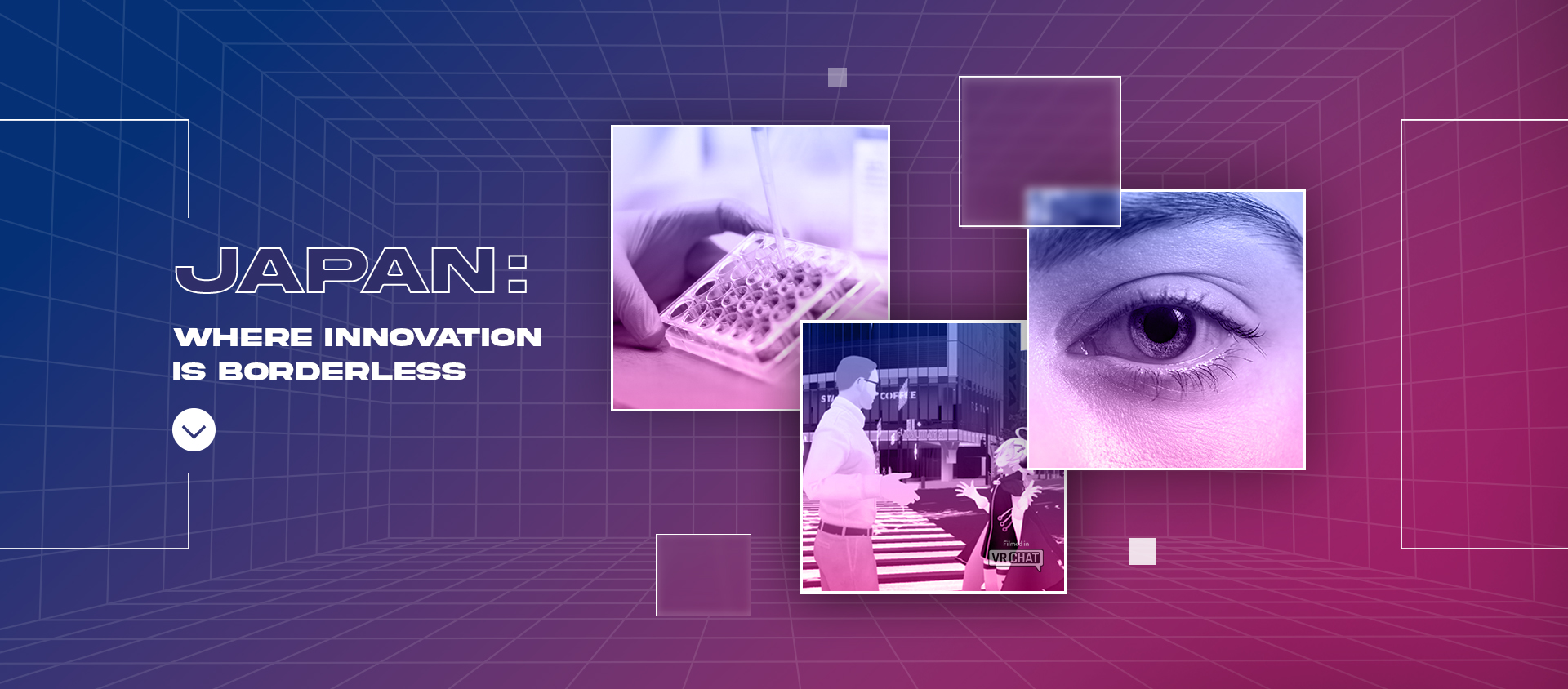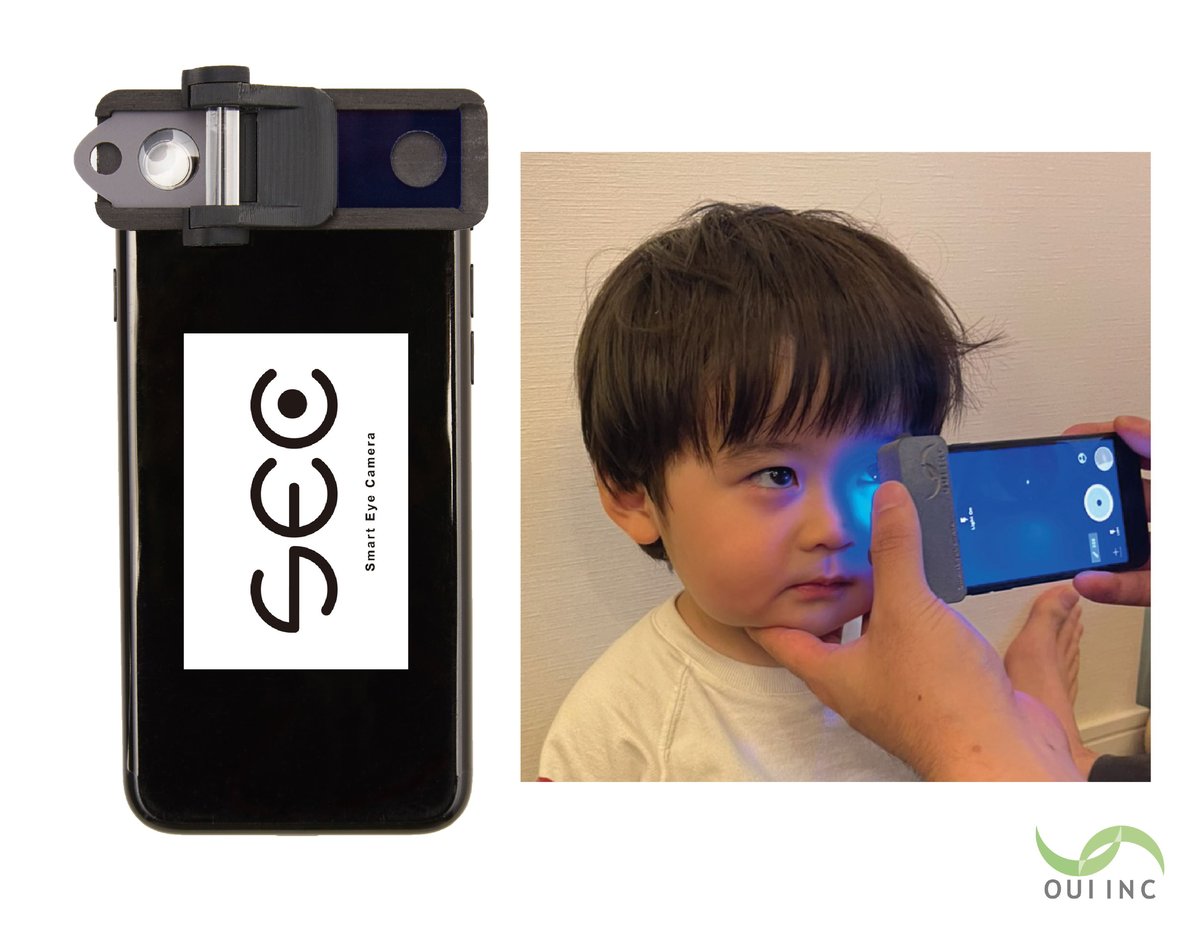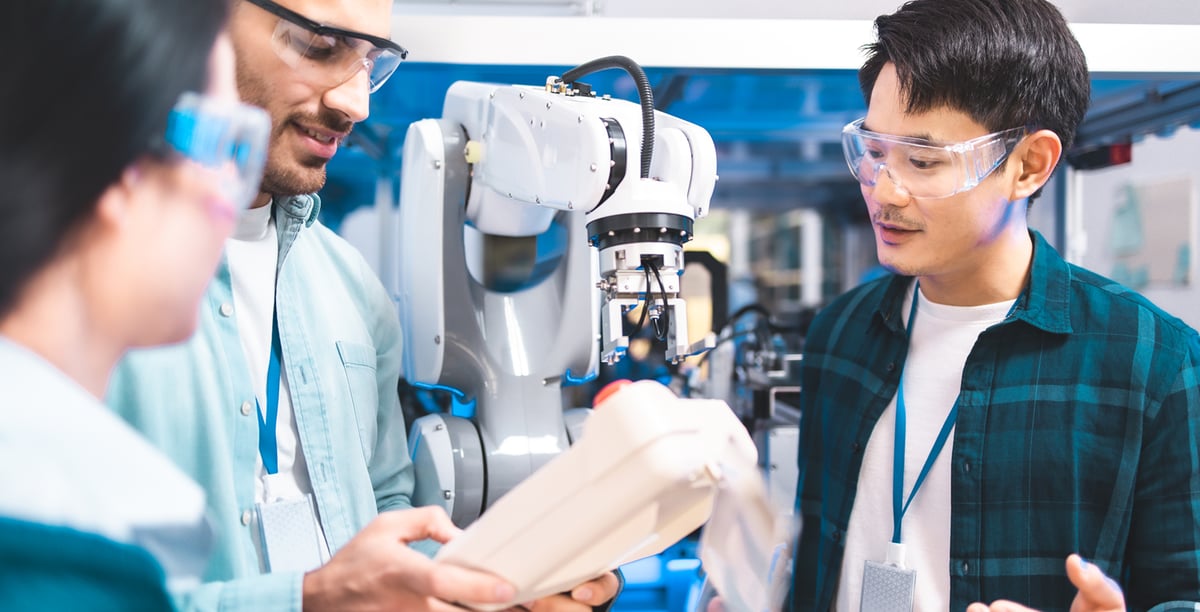
Japan: Where Innovation is Borderless
The nation that invented bullet trains, QR codes and android robots1 continues to forge ahead, advancing innovation on a global level. To create a better tomorrow for current and future generations, innovative Japanese companies are applying the latest technologies to the world’s most interesting and urgent opportunities. Startups are taking the lead on driving innovation in the new economy, from rewriting social commerce to tackling climate change.
According to Bloomberg’s 2022 Global FDI study, Japan leads developed markets in the infrastructural pull factors of research and development capabilities and early technological adoption, as well as the human capital draws of widely available technological skills and high productivity.
The Future of Experience
In a country where technology, entertainment and creativity have always converged, the next frontier of digital innovation is well under way. While video game creators, social networks and technology leaders around the world are still pondering how to capture a slice of the $800 billion metaverse opportunity, Japan is already living in the future.
Forward-looking startups like HIKKY, a Tokyo-based provider of virtual reality and augmented reality services, are creating new realms of possibility in the metaverse. Among them are new ways of working and doing business, especially as physical and virtual worlds become inseparable. The startup’s 2022 Virtual Market was the world’s largest, drawing more than 1 million visitors and more than 600 exhibitors from around the world over 16 days – and earning it a spot in the Guinness World Records for the most number of booths at a virtual reality event.
Through HIKKY's bold new vision of the metaverse, a host of the world’s best-known brands, from Audi to Yamaha, are co-creating the next big tech brand and gaining early access to new revenue streams through social, round-the-clock virtual worlds like VRChat.2
“We believe that innovation can continue to take off in the creative field if people share their enjoyment of helping each other through solutions that are independent of the environment,” says Akimi Matsuzawa, director of public relations at HIKKY.
Overcoming Global Challenges
Japan’s leadership in shaping a bolder, better future extends to the real world. Outside the metaverse, the country’s appetite for innovation is equally evident in purpose-driven ventures like OUI Inc., a Japanese medical startup founded by ophthalmologists from Keio University School of Medicine.
Its mission of reducing blindness worldwide by 50% by 2025 might sound ambitious, but it has the innovation to back it up. Its patented, 3D-printed medical device, the Smart Eye Camera, uses light sources from smartphones to achieve high-resolution images on par with those achieved by professional slit-lamp microscopes, and diagnose eye diseases including trachoma and cataract.
The award-winning device, which counts Asian Entrepreneurship Award 2022 among its accolades, is used across more than 25 developing countries worldwide, including Kenya, Zambia, Indonesia and Mongolia, where the estimated average number of ophthalmologists per one million population hovers around a paltry 3.7.3 The startup’s innovation addresses a common dichotomy in countries like Vietnam, where the idea originated: using the prevalence of smartphones to address the lack of dedicated local facilities with costly diagnostic equipment.

“Of course, we faced many technical hurdles in the course of development, but they weren’t a big deal for us because our desire to provide access to ophthalmologists for as many people as possible was very strong,’’ says CEO and co-founder Eisuke Shimizu. “The Japanese government provides many different kinds of awards to startups, which is a big support because it helps build the company’s credibility. Japanese universities have also begun to encourage and support the formation of startup companies, making it easier for innovation to take off.”
The solution’s universal relevance has improved access to medical care worldwide, regardless of country or region. "We believe that innovation knows no borders. We are willing to expand anywhere in Japan or anywhere in the world where there are patients suffering from access to eyecare. At first, we envisioned the use of this technology in developing countries, but it has strong potential in developed countries as well,” notes Shintaro Nakayama, the startup’s vice-president of global business. "In Japan, for instance, the market potential is especially large in rural areas and islands. And in urban areas around the world, the device’s portability enables timely diagnosis for elderly people with limited mobility.”
Catalyzing Social Impact
Social impact is a key theme for Japan’s startups, which are building a more sustainable future in a variety of ways, including breakthrough solutions grounded in the natural world. bitBiome is one such startup that aims to discover and better understand micro-organisms. Founded by Masahito Hosokawa, bitBiome's chief scientific officer and an associate professor at Waseda University, bitBiome made waves with its proprietary single-cell sequencing method, the bitBiome Microbiome Analysis Platform. Compared to other types of genomic analysis, its platform can uncover more than 10 times the quantity of unique genes from the same amount of sequencing data.
The company’s microbial genome library, obtained from a wide range of environments such as soil and marine water, is also the world’s largest and highest-resolution single-cell microbial genome database. It currently contains 800 million pieces of unique gene data that are not yet publicly available, making it the largest corporate database in the world.

In Japan’s high-growth life sciences and biotech industry, the startup’s innovations are overcoming conventional obstacles to microbiome research by enabling parallel whole-genome sequencing in vast quantities. They’re also paving the way for further breakthroughs in the field of synthetic biology, a global opportunity that’s expected to surpass $100 billion by 20304 – and a key focus area for Japanese innovation. “We would like to contribute to raising the level of domestic bio-manufacturing by expanding overseas branches and cultivating technological capabilities and products at a level that is ahead of the competition,’’ says Hosokawa.
The startup’s emphasis on enzyme discovery and optimization also has the potential to improve production efficiency, waste reduction and decarbonization, equipping businesses of all sectors with critical tools and new materials to combat climate change. “Japanese industries are strong internationally, and many of them are keen to decarbonize due to the concern for access to oil resources,’’ Hosokawa notes. “Although Japan is small, it has a richly varied natural environment and abundant microbial resources. Japan also has a long history of manufacturing products using microorganisms."
Accelerating Borderless Innovation
As countries around the world seek new ways of invigorating economic growth and productivity, Japan's modern infrastructure, technological know-how and highly educated labor force have created a hotspot for innovation. The novel discoveries, platforms and processes of its startup ecosystem have the potential to transform every aspect of the economy – well beyond Japan’s borders.
By diffusing the country’s innovations around the world through trade, investment and knowledge flows, the country is creating new conditions for a better global quality of life, and continuing its longstanding tradition of solving challenges head-on through entrepreneurship, collaboration and innovation.

“New innovations are being created and commercialized through consultation and collaboration among experts with various experiences, transcending all frameworks, including national borders and organizations,” says Hosokawa. “The Japanese government is spearheading rules-based frameworks to create a global ecosystem conducive to startups.”
And for Shintaro, “one of the great things about Japan is that the government, large corporations, startups, and research institutions, regardless of their different positions, are able to build consensus on the importance of solving social issues. I hope to see more collaboration and co-creation, especially with more university startups and venture companies like ours being born now.”
